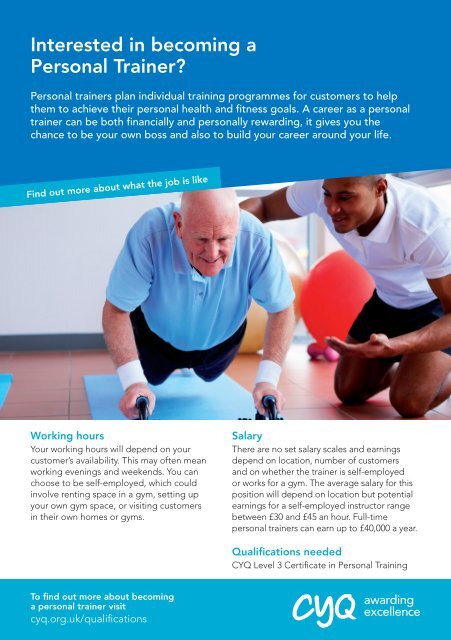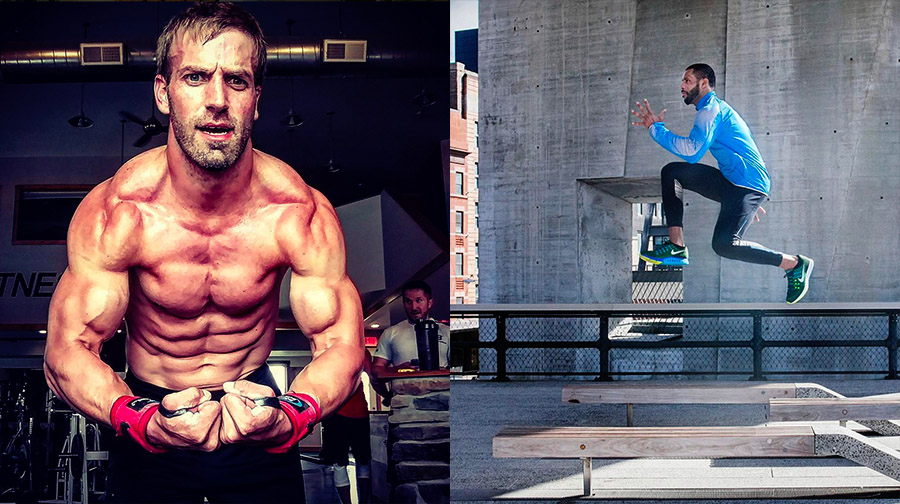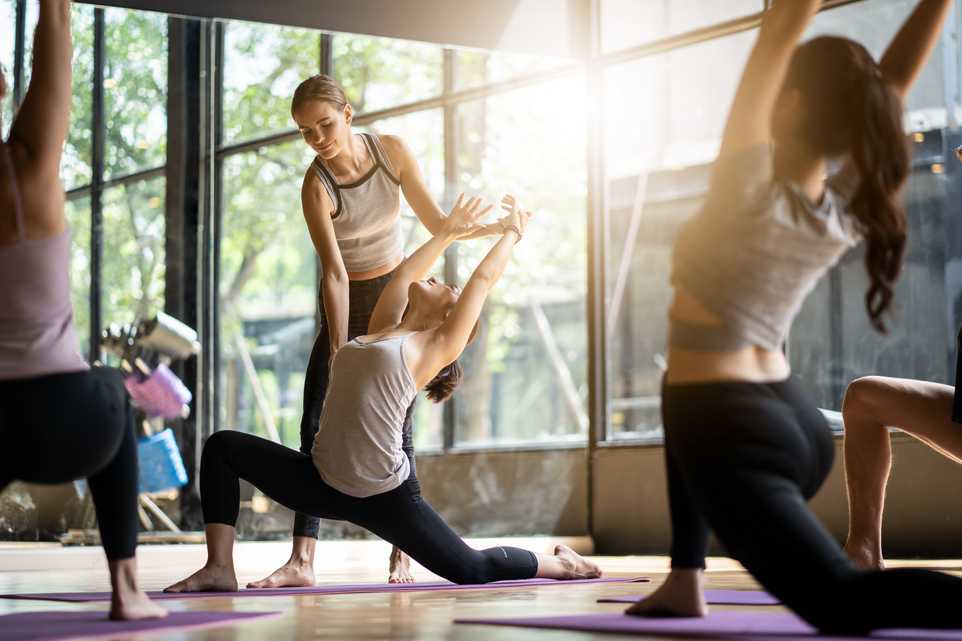
In this article, we'll go over the basics of a beginner dumbbell workout plan. You'll learn which movements you should use, what weight range you should be using, and how you can increase your reps. First, let's remember a few important things. First, weight training takes time, so it might take six weeks to see any noticeable results.
Plan for dumbbell exercises for beginners
This beginner dumbbell program is a great place to start strength training. This plan is designed to help you get a full body workout using only the dumbbells. This type plan will allow you reach the most muscle groups with the least time. These workouts can be done at home or at the gym. You can increase the difficulty of the exercises once you are comfortable with them.

Compound movements
A beginner's dumbbell workout should include 13 compound movements. These are multi-joint moves that target multiple major muscle groups simultaneously. These exercises are efficient because they target several major muscle groups in one move. Because of the coordination required and good form, beginners may find these exercises daunting. Here are some tips on how to get started with these types of exercises.
Weight range
You can use different weights depending on your fitness level. You can begin with two or three sets of eight to twelve reps, and increase the weight, reps, or sets as you improve. Beginners should concentrate on form and not quantity when working with dumbbells. It is better to do fewer repetitions if you have good form than to do too many.
Reps
Your fitness level and goal will determine the number of reps you can do in a beginner dumbbell exercise. As your strength improves, you might be able complete more reps by using heavier dumbbells. Begin with only two to three sets of eight- to twelve reps. As your strength improves, you can increase the weight. For beginners, it is important to focus on form and quality rather than quantity. Aiming to do as many reps as possible with good form is better that pushing through too many.

Exercises to do
For beginners, dumbbell rows should be used. However you must use proper technique to ensure you are using the correct weight. Start with lighter weights and increase the weight gradually to avoid straining your shoulders. Stand with dumbbells on your hips, and lift them up with your elbows. At the top of the lift, pause and squeeze your traps muscles. The dumbbell rows are meant to be performed correctly.
FAQ
Can exercise help me lose weight?
Yes. Regular exercise will help you to lose weight by burning extra calories. You can also increase your metabolism, which means you will continue to burn calories even if you don't exercise.
What is the value of good nutrition?
For our well-being and health, nutrition is essential. A healthy diet is one that includes fruits, vegetables whole grains, lean proteins, dairy, and legumes. Being active and eating healthy foods can help us be more fit, which results in better overall health.
Can I exercise after eating?
It all depends on the type of exercise that you are doing. Avoid strenuous activities after meals because they can cause stomach cramps. Instead, focus on light aerobic activities like brisk walking or biking.
Why is physical exercise important?
Our health is dependent on our physical fitness. Exercise is important to maintain your weight, strength and flexibility as well our cardiovascular system. Exercise can help you sleep better, reduce stress, increase self-esteem, and increase energy levels throughout your day.
Do I need a warm-up before I go?
Warming up prior to an activity helps reduce muscle soreness. It also improves performance. There are several ways to warm up. These include running, jumping ropes stretching, running and even cycling. Start slow and slowly increase your pace.
What are cardio exercises?
Cardiovascular exercises are those that require your heart and lungs to work harder than normal. Swimming, cycling, rowing, and jogging are all examples. These activities help you burn fat and increase your metabolism. They can also help you stay fit by strengthening your heart and lungs.
What happens if there isn't enough sleep?
You can't get enough sleep and your brain will not be able to regulate hormones and chemicals responsible for controlling appetite and metabolism. You may also gain weight and overeat. Sleep deprivation can also lead to excessive weight gain.
Statistics
- Globally, 81% of adolescents aged 11-17 years were insufficiently physically active in 2016. (who.int)
- In high-income countries, 26% of men and 35% of women were insufficiently physically active, as compared to 12% of men and 24% of women in low-income countries. (who.int)
- In 2018, the World Health Assembly agreed on a global target to reduce physical inactivity by 15% by 2030 and align with the Sustainable Development Goals. (who.int)
- According to the Centers for Disease Control and Prevention, chronic diseases cause 7 out of 10 deaths in the U.S., and treating chronic diseases accounts for 86% of U.S. healthcare costs. (mana.md)
External Links
How To
How to Stay Fit at Age 40
This article guides those who want to keep their body healthy and strong even at 40 years old. This article provides basic information on how to eat well, exercise, sleep well, and take care your mental health. This article gives tips on how to live longer and healthier.
-
Healthy eating habits are key to staying fit. You should steer clear of processed food products, and eat whole grains and fruits, vegetables, lean proteins, fish, eggs, nuts, seeds, beans and legumes. If you don't like what you're eating, just add something else to your diet. You don't have to eat a lot. This won't help you lose any weight. Instead, try adding small amounts to your daily meals. If you eat chicken breast most of the time, try turkey one week. You might also enjoy rice if you like pasta. These foods should be a part of your daily life.
-
Exercise - When exercising, make sure you work out at least three times a week. You should include cardio activities such running, swimming or biking. Make sure to get enough rest. Aim to sleep 8 hours per night. In addition, make sure you drink plenty of water during the day. Every day, aim to drink at least 2 liters (0.5 gal) of water.
-
Sleep Well - Getting adequate sleep is essential to staying fit. According to the National Sleep Foundation adults need 7-8 hours of sleep per day to maintain their optimal physical and emotionally healthy. Most people get less than 6 hours sleep each night. You might consider changing your sleeping patterns if you feel tired all day. To catch up on sleep, you can adjust your sleeping habits to get to bed earlier and wake up later. You can also turn off your smartphone before you go to sleep so you can relax and wind down. Avoid caffeine after noon, as it can cause sleeplessness.
-
Take care of your mental health - It is essential to take good care of your mind in order to keep your body healthy. Stressful situations can lead to poor eating habits and unhealthy lifestyle choices. It is important to practice stress management techniques like meditation, yoga, breathing exercises, relaxation, and breathing exercises. You should spend at least one hour each day doing something that you find enjoyable. This could be taking a stroll outside, reading a book or listening to music.
The four above points will make you live longer and more healthy. These simple steps will allow you to reach your fitness goals.